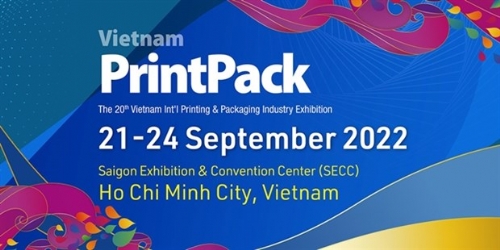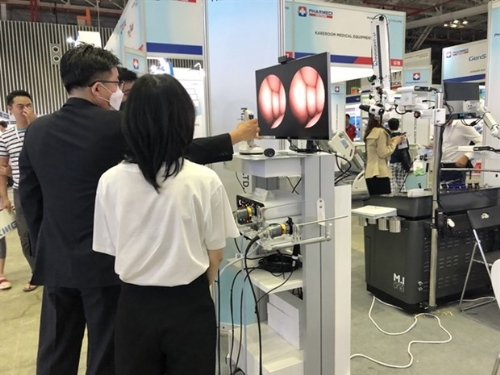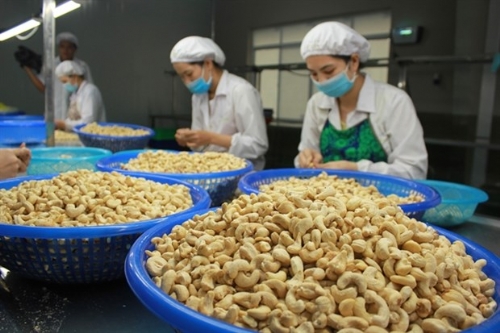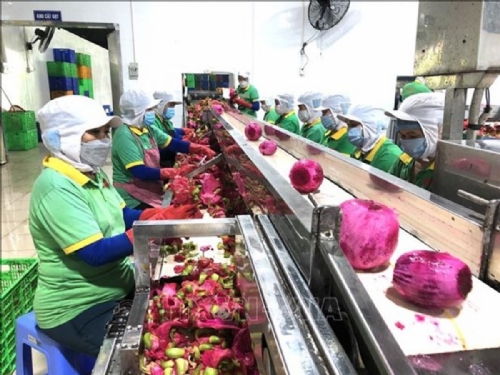Building Professional Trade and Investment Promotion System
Wednesday, February 14, 2018 08:03

Vietnam is pushing forward intense economic integration at three global, regional and national levels. The formation of a focused strategy and the effective connection of professional trade and investment promotion systems between domestic and foreign markets and industries will surely help improve the quality of goods and services and the competitiveness of enterprises.
In the world, globalisation is being robustly accelerated by the development of market economy and the era of Fourth Industrial Revolution. Not only the natural law of ‘universal gravity’ is mentioned, but free markets with internet of things (IoT) law driven by scientific and technological advancements.
In the region, after 50 years of construction and development and especially in the latest 10 years, the ASEAN manufacturing and service sector has been liberalised towards the ASEAN Economic Community (AEC). At present, ASEAN, one of the regional blocs with most trade agreements on the globe, is negotiating the Regional Comprehensive Economic Partnership (RCEP) Agreement, which will open up a vast space for trade and investment not only in Southeast Asia, but also the Pacific. ASEAN is also in talks with Canada on the formulation of a free trade agreement and in discussion with the Eurasian Economic Community about the possibility of formulating a free trade agreement.
In the country, the Vietnam’s economy, under the direction of an enabling government, is entering a new growth path which is rapid and sustainable. 2017 marked the highest GDP growth rate in 10 years, reaching 6.81 per cent, and GDP expanded to over US$200 billion. Foreign direct investment (FDI) capital exceeded US$35 billion and the trade value set a record of over US$400 billion. In 2017, the VN-Index sometimes verged on the 1,000-point sentimental benchmark - a nearly 10-year high. In the World Bank’s Doing Business Index, Vietnam climbed 14 places to rank 68th out of 190 countries and territories.
In this context, competition will be the inevitable rule of development which is shifting from quantity to quality. In particular, many tariff lines of so-called sensitive goods will be slashed to zero in the 2018 - 2022 period. To edge up competitiveness, businesses need to take notice of the three following business development trends:
The industrial production of strategic goods and services will be the core sector where quality will be a competitive factor rather than price, as in the domestic market, reduced tariffs will balance prices of goods and services. In addition, if goods are to be exported under committed economic integration programmes, their localisation rates must be achieved.
In addition to innovation and creativity, professionalism in scientific and technological applications and management standards will be a measure of corporate governance to improve the quality of products and services. While technocracy has been replaced by humanitarian administration, at the corporate level, efficiency is measured not only by profit or salary but also by legal compliance, customer satisfaction, market leadership and good working conditions for employees.
Sustainability is a development trend of countries, focusing on production and investment models that ensure economic development, but also control issues affecting the environment and the society. Moreover, with people's education and incomes increasing, people are becoming smart and socially responsible consumers.
Moreover, in the process of changing regional and global economic landscapes, it is necessary to take professional steps in building and developing trade and investment promotion systems and connecting sectors and promotion activities in key partner markets of Vietnam.
Accordingly, Vietnam should develop a focal international economic integration strategy; define highly-competitive core goods and services in order to formulate appropriate technical, quality and management policies in production and industry; take professional and organisational steps in allying important manufacturing and industrial sectors such as tourism, logistics, electronics, energy, green agriculture and maritime industry in order to create the linkage of core industries to enhance the competitiveness of Vietnamese products and connect domestic value chains with global value chains.
In addition, it is necessary to actively build business affiliations and business associations in strategic partner markets in order to promote trade in quality goods and expand overseas markets; and gradually boost investment when these markets have the opportunity to secure business.
Against the backdrop of intensive and extensive economic integration, developing a focused strategy and effectively connecting professional investment and trade promotion systems between domestic and foreign markets and industries will ensure the improved quality of goods and services and the competitiveness of enterprises, and ensure the success of an enabling government. Together with momentum of the era of internet of things (IoT), the initiative and solidarity of domestic and foreign business communities will position international competitiveness of Vietnamese goods and services. Dr Doan Duy Khuong
VCCI Vice President
Other news
- HCM City to host Vietnam Print Pack 2022 expo(9/16/2022 11:02:26 AM)
- Medical-pharmaceutical, beauty products exhibitions open in HCM City(9/16/2022 10:58:48 AM)
- Firms must work to fully benefit from UKVFTA: Insiders(8/24/2022 3:15:30 PM)
- Vietnam, Argentina boost trade cooperation(8/23/2022 3:51:49 PM)
- Workshop helps fresh fruit exporters learn about China’s new regulations(8/23/2022 3:47:36 PM)
- HCM City to host Int'l Textile & Garment Industry Exhibition(8/23/2022 3:11:55 PM)
- Saigon Autotech & Accessories Show to be held in late October(8/19/2022 8:38:38 AM)
- Vietnamese handicrafts go on sale at New York Now 2022(8/18/2022 8:52:55 AM)
- Week of OCOP products launched in Hanoi(8/17/2022 8:39:01 AM)
- Trade fair looks to expand “One Commune One Product” markets(8/16/2022 11:21:14 AM)






